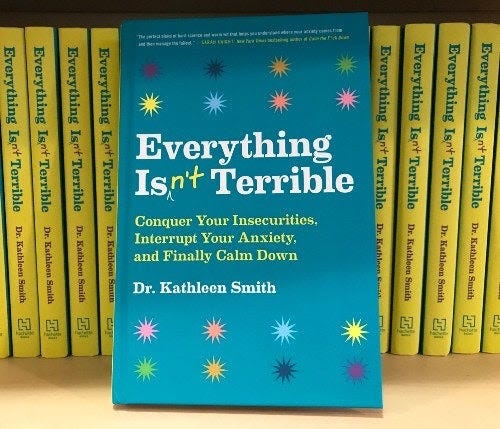I Need You, So Please Go Away
How Chronic Anxiety Makes Us Allergic to Each Other
How much time do you spend every day doing these things?
Wondering whether someone likes you (or doesn’t).
Anticipating negative reactions from others.
Worrying about an email or text you sent (or haven’t sent).
Thinking about what you “should” be doing.
Scolding yourself for not doing enough.
Imagining worst case scenarios.
Thank God I don’t get a report on this, like my daily screen time usage. It would be pretty embarrassing.
The more you require positive reactions to regulate yourself, the more time you will spend focusing on others’ reactions.
I think pandemic life has increased this anxious focus on others. It’s easier to assume that people don’t like you over a Zoom call, or that a friend resents you for not keeping in touch. The less you connect with your partner, the more you will personalize their bad moods.
Dial up the anxiety, and two things happen. We need each other more, but we’re also more allergic to each other. This why many people crave closer relationships, but find the processes of dating, making new friends, or reconnecting with family unbearable.
Paradoxically, the people who don’t rely as much on positive reactions seem to have closer, more satisfying relationships with others. They can handle intense situations by applying their best thinking about who they’re trying to be.
To decrease your anxious focus on others, you have to be willing to hit pause on the behaviors that usually calm you down.
These might look like:
Avoiding the people that you think dislike you.
Apologizing when you don’t need to.
Asking for reassurance from friends/family.
Going along with something you don’t like to keep things calm.
Engaging in downward comparison (at least I’m doing more than him).
Using substances or other obsessions to calm down.
Seeking out praise from peers and colleagues.
Chasing after cultural definitions of success.
It is uncomfortable to interrupt these familiar behaviors. To move toward people who may not like you or set a boundary when you might get pushback. To divert from the world’s (or your family’s) definitions of success, or to evaluate yourself instead of seeking out praise. But this is the good kind of anxiety, a marker of progress rather than regression.
There are plenty of helpful techniques to manage acute anxiety. But we only learn to grow up in relationship to each other. When we learn to act in a way that is in sync with what we believe. Even when people don’t like it. Especially when people don’t like it.
So what do you believe is best way to be a human in a very anxious world? How do you conduct yourself when people disapprove, disagree, or even reject you? How do you define good work or a good life? How do you want to be responsible for yourself and to your neighbor?
Meditating on these answers provides a road map for anxious times, a slower journey than chasing after approval or attention. Because the better you can define yourself, the more you free up your relationships to be something more than just a way to calm yourself down.
News from Kathleen
The Kindle version of my book, Everything Isn’t Terrible, is on sale for $4.99.
For Medium’s Forge Mag, I wrote about how pseudo-connection waters down our relationships.
September 24th - I’m presenting all day at the Bowen Theory Education Center’s Annual Symposium in Chattanooga about Staying Curious in an Anxious World. The event will also be on zoom, so check it out.
Want to support my free newsletter? Buy me a coffee to keep the thoughts flowing.
Want to read more of my writing? You can read old newsletters at my website, or buy my book Everything Isn't Terrible from Amazon, Barnes and Noble, Indiebound, or your local bookstore (best option).
Want a free anxiety journal? Calming Down & Growing Up: A 30 Day Anxiety Journal includes thirty daily prompts to help you reflect on and respond to your anxious behaviors. To receive a copy, just email me your receipt.
Follow me on Twitter, Facebook, or Instagram, or email me if you have questions about my therapy practice in Washington, DC, virtual Bowen theory coaching, or having me speak to your group.
Want to learn more about Bowen theory? Visit the Bowen Center’s website to learn more about their conferences and training programs.



